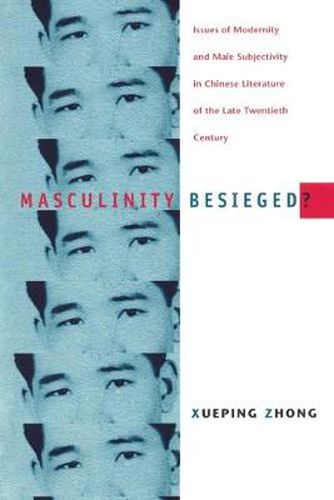Readings Newsletter
Become a Readings Member to make your shopping experience even easier.
Sign in or sign up for free!
You’re not far away from qualifying for FREE standard shipping within Australia
You’ve qualified for FREE standard shipping within Australia
The cart is loading…






A study of Chinese literature and films produced during the 1980s to examine male subjectivities in contemporary China. Reading through a feminist psychoanalytic lens, Zhong argues that understanding the nature of male subjectivities as portrayed in literature and film is crucial to understanding China’s ongoing quest for modernity. Stories by Zhang Xianliang and Liu Heng portraying male anxiety about masculine sexuality are employed by Zhong to show how marginal males negotiate their sexual identities in relation to both women and the state. Looking at writers popular not only among the well-educated but also the working and middle classes, Zhong discusses works by Han Shaogong, Yu Hua and Wang Shuo and examines instances of self-loathing male voices, particularly as they are articulated in Mo Yan’s well-known work, Red Sorghum . In her last chapter, Zhong examines roots literature , which speaks of the desire to create strong men as part of the effort to create a geopolitically strong Chinese nation. In an afterword, Zhong situates her study in the context of the 1990s.
$9.00 standard shipping within Australia
FREE standard shipping within Australia for orders over $100.00
Express & International shipping calculated at checkout
A study of Chinese literature and films produced during the 1980s to examine male subjectivities in contemporary China. Reading through a feminist psychoanalytic lens, Zhong argues that understanding the nature of male subjectivities as portrayed in literature and film is crucial to understanding China’s ongoing quest for modernity. Stories by Zhang Xianliang and Liu Heng portraying male anxiety about masculine sexuality are employed by Zhong to show how marginal males negotiate their sexual identities in relation to both women and the state. Looking at writers popular not only among the well-educated but also the working and middle classes, Zhong discusses works by Han Shaogong, Yu Hua and Wang Shuo and examines instances of self-loathing male voices, particularly as they are articulated in Mo Yan’s well-known work, Red Sorghum . In her last chapter, Zhong examines roots literature , which speaks of the desire to create strong men as part of the effort to create a geopolitically strong Chinese nation. In an afterword, Zhong situates her study in the context of the 1990s.